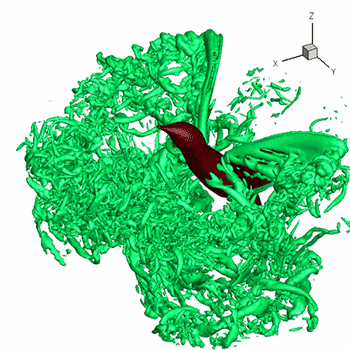#color(white)(AAAaaaAAAAAA)1#
#color(white)(AAAAaAAAaA)1color(white)(aa)1#
#color(white)(aaaaaaaa)1color(white)(aa)2color(white)(aa)1#
#color(white)(aaaaaa)1color(white)(aa)3color(white)(aaa)3color(white)(aa)1#
#color(white)(aaaa)color(red)1color(white)(aa)color(red)4color(white)(aaa)color(red)6color(white)(aaa)color(red)4color(white)(aa)color(red)1#
#color(white)(aa)1color(white)(aaa)5color(white)(aa)10color(white)(aa)10color(white)(aa)5color(white)(aa)1#
#1color(white)(aaa)6color(white)(aa)15color(white)(aa)20color(white)(aa)15color(white)(aa)6color(white)(aa)1#
#(x+3y)^4#
Use row 4 of Pascal's triangle, shown above. The top row is row zero, the next row is row 1, etc.
Row 4 is #color(red)(1, 4, 6, 4, 1)#.
- These numbers are the coefficients of the terms in the binomial expansion.
- The variables are #x^color(blue)4(3y)^color(green)0,x^color(blue)3(3y)^color(green)1, x^color(blue)2(3y)^color(green)2#, etc.
- Note the exponents on the #x# start at #color(blue)4# and decrease and the exponent on #3y# starts at #color(green)0# and increases.
- The sum of the exponents is 4, because we are expanding the binomial to the 4th power.
Putting it all together gives:
#color(red)1x^color(blue)4(3y)^color(green)0+color(red)4x^color(blue)3(3y)^color(green)1+color(red)6x^color(blue)2(3y)^color(green)2+color(red)4x^color(blue)1(3y)^color(green)3+color(red)1x^color(blue)0(3y)^color(green)4#
#x^4+12x^3y+54x^2y^2+108xy^3+81y^4#

